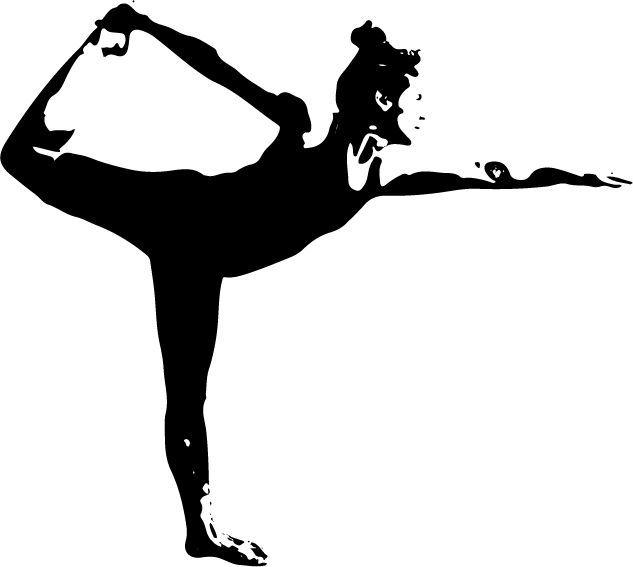Healing yoga can help survivors of sexual trauma reconnect with their bodies and learn to become intimate again.
Sexual assault survivors can access the new program Yoga For Healing in hopes of providing a pathway for healing from trauma. The workshop is a free 8-week series of sessions that combines gentle yoga and guided activities in a supportive environment for survivors.
Kristen Fabiszewski, Coordinator for Yoga for Healing and Assistant Director & Coordinator of Quality Assurance for Student Health Services, said that she was inspired to coordinate and spread the new form of healing on campus for survivors after attending a panel event that was hosted in 2014.
“In December 2014, our student bystander group, PAUSE (Prevention Awareness Uniting Students with Empowerment) hosted a sexual assault recovery panel event,” Fabiszewski said. “Most of the speakers came to us through the help of the UCI CARES (Campus Assault Resources and Education) office. Zabie Yamasaki, the founder of Transcending Sexual Trauma through Yoga was one of the participants.”
After the panel, Yamasaki met with a woman’s health and health education staff member to discuss and spread awareness of the Yoga for Healing program, according to Fabiszewski.
“Yamasaki was sexually assaulted in her last year as an undergraduate at UCI, and her yoga practice was instrumental in her own healing process,” Fabiszewski said. “Her work was influenced by Dr. Bessel van der Kolk and David Emerson from the Justice Resource Institute in Massachusetts; their research on the physiological effects of trauma and the use of yoga as the means of self-regulation for survivors.”
Inspired and driven by Yamasaki’s personal story, Fabiszewski was determined to teach the program to Cal State Long Beach.
Through the Yoga for Healing workshop, Fabiszewski hopes that the participants will be able to learn healing tools that make them feel comfortable within their bodies.
“For those who haven’t been helped by talk therapy, or for those who have, but are still in need of something more, the goal is for participants to learn new tools to help them feel more grounded, centered, and at home in their bodies,” Fabiszewski said. “The emphasis in the class is on the student making personal choices about what feels best for them, knowing that they are always in control of their practice.”
Fabiszewski’s goal is for the program to benefit survivors and to spread awareness within the CSULB community.
“Using the Healing of Yoga, survivors can get past the effects of trauma, which can later empower someone to later tell their story and perhaps even report it (if they hope to do so),” Fabiszewski said. “Sexual assault and abuse affects far, far too many individuals and I want them to know that they don’t have to sit with their pain, alone, and that with help they can find what they need to feel whole again.”
The trauma-informed yoga includes the mind, body and soul and opens a new path for healing from incidences of sexual violence.
Candis Simmons-Davis, a sexual assault victim’s advocate in the Women’s and Gender Equality Center, said that the sessions are a form of meditation for the survivors and hopes will bring immense awareness within themselves.
“Often survivors of sexual assault or sexual abuse have a really hard time in their relationships, which makes them feel uncomfortable in their own body and skin, but sexually assaulted victims are being violated within their own skin,” Davis said.
According to Davis, yoga helps survivors reconnect with their own bodies.
“I advocate healing yoga because it helps survivors get comfortable within their own skin and body, so hopefully it can help them with intimacy again,” Davis said. “Even if a survivor has a good and healthy relationship with their partner, they still tend to have intimacy issues due to the assault trauma, so the program can help them with that issue.”
Davis said that the workshops are instructed by trauma-informed advocates who are aware of the victims’ situations.
Davis stated that CSULB’s Student Health Services is conducting the Yoga for Healing classes in hopes of spreading to other campuses including some of the in and off-campus rape crisis centers and the YWCA Greater Los Angeles, the local rape crisis center, has partnered with the campus to spread awareness.
Not Alone at the Beach is an awareness campaign that honors survivors who have broken their silence and supports victims who have yet to find their voice.
“The campaign is conducted by a team of people, [the] CCRT team, which is the Coordinated Community Response Team, and that’s what Not Alone at the Beach represents,” Davis said.
Sexual assault victims have survived domestic violence, stalking ,abuse, etc., which follows under the sexual misconduct aspect.
“We often get students who are Adults Molested as Children and we call it AMAC survivors,” Davis said.
The CCRT, including Title IX, University Police and CAPS, want any students who [have] experienced sexual assault to open up and share their traumatic history “because at the end of the day we are all here to help in any and every possible way,” Davis said.
For additional services, students can contact any sexual assault victim’s advocate in the Women’s and Gender Equality Center located in LA1-102, CAPS at 562-985-4001 or at the 24 hour hotline. The YMCA of Greater Los Angeles: Sexual Assault Crisis Services can be reached after 5 p.m.; the 24 hour crisis hotline at 877-Y-HELPS-U, and at 877-943-5778.





Where do we go to sign up?